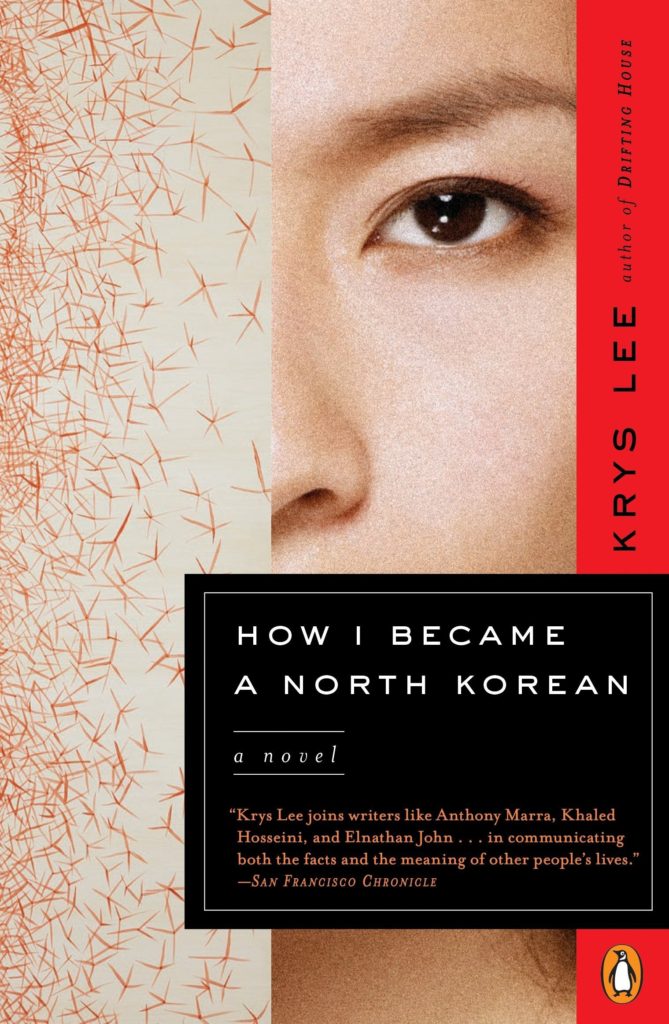How I Became a North Korean by Krys Lee
Krys Lee was born in South Korea but mostly raised and educated in the U.S. She now lives in Seoul and is a professor of creative writing. She has also worked as a journalist and a translator. Her novel How I Became a North Korean is her first novel and was published in 2016.
What struck me as the most intriguing aspect of this book is that even though the story is fiction, the horrendous and inhumane actions described by Lee actually occur on a daily basis in North Korea. In a book review of a novel, I prefer to concentrate on the storyline, character development, and writing rather than express my personal views on the subject. But in this case, based upon my own studies and first-hand experience traveling in the northeastern part of China, where this story takes place, I feel obligated to say that Lee has provided us with an accurate account of what many North Korean defectors experience.

Lee tells her story through three characters. The book is divided into four parts, which are titled, and all chapters are given the name of the character speaking at that point. The characters are young, between the ages of 16 and perhaps 25, but have very different backgrounds. There are two males and a female. And with the story moving in chronological fashion, it is easy to follow. The title indicates that the one character who is not North Korean, Danny, is the main narrator, but there is a fair balance between each of the three’s contribution to the story.
While we are continually reminded of the physical hardships endured by North Koreans hiding out in China – from hunger, cold, filth, and danger – Lee emphasizes the attack on dignity as the main way that hope for a better life can be destroyed. It is through the female character, Jangmi, that we see the worst of these manifestations. It is no wonder that the various forms of sexual exploitation that she suffers, even at the hands of those sworn to help her, lead her to the conclusions that “everyone wants something,” and that in life, one does what one has to do.
Danny is Joseon-jok, meaning that he is of Korean ethnicity and, in his case, born in and a citizen of China. But he lived in the U.S. since he was nine and now, as a teenager, he has returned to visit his mother who is doing missionary work. The reunion does not go well. Through Danny, the author underscores a disdain for hypocrisy, much of it directed towards the Christians in the story. I cannot say why Lee comes down hard on Christians, other than it might be her way of expressing that no one really cares about the North Koreans.
The third main character, Yongju, is from a family that fell out of grace with the North Korean regime. In the book, as in real life, his family had the advantage of some money and contacts that enabled them to more easily flee across the border. But also, as in real life, once they were in China, they were nobody. His mother and sister quickly disappear.
Each character is looking for and has a different understanding of freedom. Based on the nature of the story, this is fully understandable. But how are they to experience the positive power of freedom when images of the past haunt them? Jangmi and Yongju have lost so much. Freedom for them rests upon them as loneliness. They wonder if there can be happiness within loneliness. Is life a paradox?
Freedom for Danny was a different matter but nevertheless not easy to attain. His struggle is more of a coming-of-age story that one might expect to find in a book for young adults. However, in line with Lee’s purpose of telling a story about North Korea, Danny’s youth is appropriate, as the facts are that most of the North Koreans crossing the Tumen River into China are young.
I enjoyed Lee’s straightforward writing style. The characters in their youth are naïve in many ways but have experienced sufferings more appropriate for much older people. Thus, when they speak, they show us the world that they see without trying to impress or influence, and the life burdens they bear are not hidden by over-modified impressions. It is as if Lee has her characters stick to their script because they know that they are trapped and that one wrong move could destroy the faint hope that keeps them going.
My edition of the book has 244 pages, but it is past page 200 that Lee surprises us with unexpected drama. Up until this point, the reader is expecting that something must happen. Yet Lee’s twist of fate remains in the realm of believability as everything before, while drawing this episode of these young people’s lives to a close, or perhaps I should say, to a new beginning.
The Reviewer
Michael Attard is a Canadian who has lived in Gwangju since 2004. Though officially retired, he still teaches a few private English classes. He enjoys reading all kinds of books and writes for fun. When the weather is nice, you may find him on a hiking trail.







